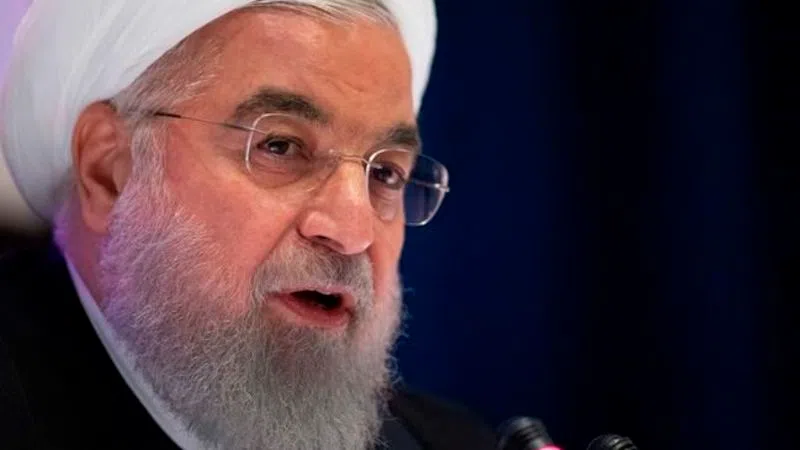
Iranian president: US should end ‘maximum pressure’ policy
NEW YORK — Iranian President Hassan Rouhani urged the United States on Thursday to “cease this policy of maximum pressure” on his nation, saying it was driving the possibility of negotiations even further away.
Rouhani stuck to his insistence that U.S. sanctions must be lifted before he would talk with U.S. President Donald Trump, although he did not explicitly rule out such a meeting if they remain in place. He spoke about discussions with the leaders of France, Japan and Pakistan about trying to promote talks, and he made clear that such contacts are continuing.
At a wide-ranging news conference a day after his address to the U.N. General Assembly on Wednesday, he said the Americans are still using “more pressure aimed at reaching discussions, which is the same thing that is taking them farther and farther away from discussions and negotiations.”
“Cease this policy of maximum pressure and pursue a policy of dialogue and logic and reason,” Rouhani said. Moving in that direction, he said, “would be a different set of circumstances and a different atmosphere.”
